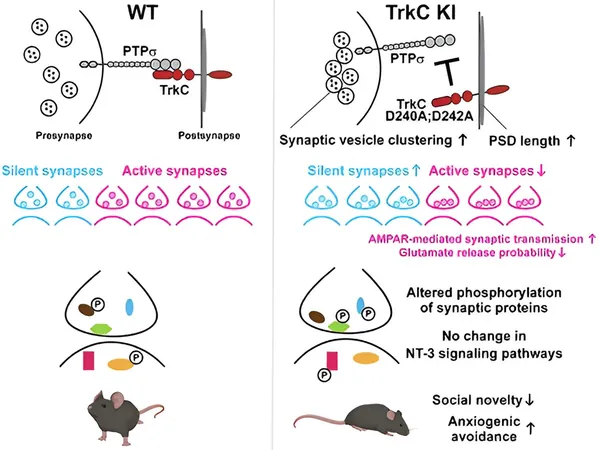
Disappointment in Metformin: Why This Diabetes Drug Didn't Deliver on Cancer Hopes
2024-10-12
Author: Emily
Introduction
Metformin, a drug primarily used to manage diabetes, has received attention for its potential anticancer properties, prompting many patients to ask if they should consider using it to treat their cancer. Despite its widespread use and low cost — less than a dollar per dose — evidence supporting its effectiveness against cancer remains elusive.
Historical Context and Mechanism of Action
Metformin's journey began over a century ago, inspired by natural remedies for diabetes symptoms derived from the French lilac plant. Its mechanism targets cellular functions, particularly within mitochondria, enhancing insulin sensitivity and modulating immune responses. These characteristics spurred research suggesting that metformin could slow cancer cell growth in laboratory settings.
Recent Research Findings
However, recent, rigorously designed studies have illuminated a harsh reality: metformin has not proven effective in enhancing cancer treatment outcomes. A significant series of trials, including two large-scale studies focusing on prostate cancer, have shown that the addition of metformin to standard therapies did not improve survival rates. This conclusion was echoed in a notable Canadian study presented at the American Society of Clinical Oncology conference, where participants taking metformin experienced no difference in disease progression compared to those on a placebo.
The Immortal Time Bias
Moreover, a multinational study involving over 3,600 breast cancer patients revealed that metformin did not enhance survival outcomes, further disheartening expectations.
Ongoing Research and Future Directions
The initial encouraging findings that linked metformin to reduced cancer risk may have stemmed from what researchers now identify as 'immortal time bias.' This bias occurs when studies only include individuals who survived long enough to receive the drug, inadvertently skewing results to suggest a protective benefit.
While some researchers still hope metformin could benefit specific cancer subtypes, evidence remains far from conclusive. With advances in cancer treatments continually evolving, there is less opportunity to assess metformin's potential effectively. New trials are being conceived for earlier-stage cancers, and other potential uses of metformin are being explored, including its role in addressing precancerous lesions and its possible application in anti-aging therapies.
Expert Opinions
Dr. Nir Barzilai, a prominent researcher advocating for metformin’s potential in longevity, is currently leading a trial that aims to examine whether metformin can extend life in older adults. Yet many experts, including oncologist Michael Pollak, urge caution, emphasizing the need for robust, conclusive studies before drawing any firm conclusions about the benefits of metformin in cancer treatment.
Conclusion
In summary, while metformin remains a staple in diabetes management, its anticipated anticancer benefits have not materialized as hoped, leading researchers and patients alike to reconsider its role in oncology. As the clinical landscape continues to shift, further investigations into this versatile drug could one day uncover new pathways for its application beyond diabetes. Until then, patients are advised to remain cautious and consult with healthcare professionals regarding their treatment options.









 Brasil (PT)
Brasil (PT)
 Canada (EN)
Canada (EN)
 Chile (ES)
Chile (ES)
 España (ES)
España (ES)
 France (FR)
France (FR)
 Hong Kong (EN)
Hong Kong (EN)
 Italia (IT)
Italia (IT)
 日本 (JA)
日本 (JA)
 Magyarország (HU)
Magyarország (HU)
 Norge (NO)
Norge (NO)
 Polska (PL)
Polska (PL)
 Schweiz (DE)
Schweiz (DE)
 Singapore (EN)
Singapore (EN)
 Sverige (SV)
Sverige (SV)
 Suomi (FI)
Suomi (FI)
 Türkiye (TR)
Türkiye (TR)